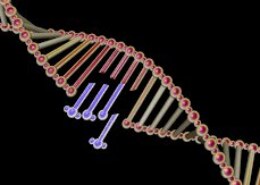Roles of Introns in DNA: 1. Introns, previously thought of as useless DNA, have significant functions in controlling gene expression. They enable alternative splicing, enabling one gene to create various proteins, thus enhancing protein variety without increasing genome size. 2. In addition, intronsRead more
Roles of Introns in DNA:
1. Introns, previously thought of as useless DNA, have significant functions in controlling gene expression. They enable alternative splicing, enabling one gene to create various proteins, thus enhancing protein variety without increasing genome size.
2. In addition, introns play a role in regulating genes by containing elements that impact how genes are expressed. They have the ability to impact mRNA stability and transportation, which guarantees proper and timely synthesis of proteins.
3. Introns play a role in evolution by offering opportunities for genetic recombination and mutation, potentially resulting in the development of novel gene functions.
4. Their existence in DNA highlights the intricate nature of genomic regulation and the advanced methods of controlling gene expression.
See less

figure: Attributes of diatoms for the biodegradation and bioremediation of petroleum hydrocarbons in the marine environment. Diatoms, a type of marine microalgae, offer significant potential for bioremediation due to their unique properties and capabilities: Nutrient Removal: Diatoms can absorb andRead more
figure: Attributes of diatoms for the biodegradation and bioremediation of petroleum hydrocarbons in the marine environment.
Diatoms, a type of marine microalgae, offer significant potential for bioremediation due to their unique properties and capabilities:
Utilizing diatoms for bioremediation requires understanding species-specific capabilities, optimizing growth conditions, and integrating their use into existing environmental management strategies. Research continues to explore and expand the potential applications of diatoms in sustainable bioremediation practices worldwide.
See less